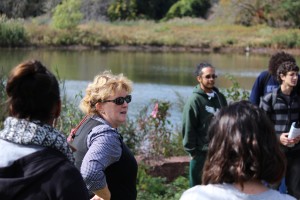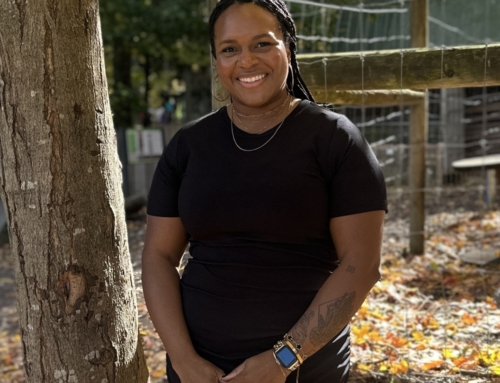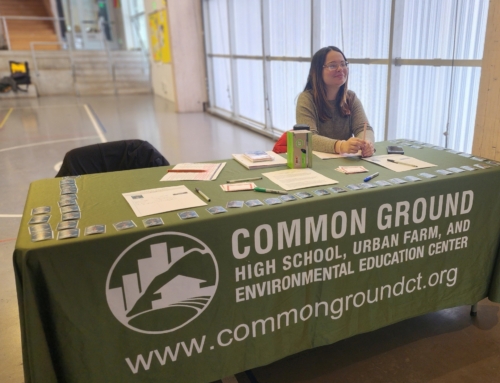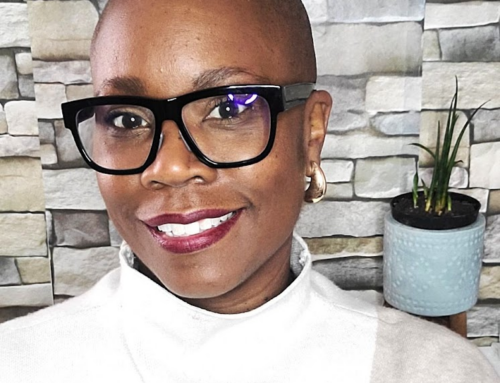
Environmental Justice students, with science teacher Tricia Johnson, explore water quality issues on the West River.
At Common Ground, we push students to do real, authentic projects that help them master tough academic content while addressing actual community needs. Right now, students in Common Ground’s Environmental Justice course are planning their capstone projects — substantive, challenging, applying what they’ve learned so far this semester to a real community issue that matters to them. But what makes a powerful and successfull project?
Earlier this week, our Environmental Justice teachers — Tricia Johnson (Environmental Science) and Brian Kelahan (Social Studies) — asked students to tackle this question. Tricia explains what happened: “First, as an opener, they wrote down 3 things they they thought made for a successul project.Then we shared out. When I first asked for a volunteer to share, I got three hands. After that, there was deluge of hands until we reached this list.”
Here are students’ answers — helpful advice to any teacher trying to engage students in meaningful, field- and community-based learning:
-
Develop and follow a clear project purpose
-
The project should be about authentic work
-
Roles are assigned to each
-
Be focused and passionate
-
Tasks should be feasible to accomplish
-
Have an effective agenda
-
Put in effort
-
Have the ability to work with anybody
-
Have good accessibility to research and equipment
-
Have good communications within the group and with outside players
-
Time – enough to do a thorough job and possibly revise?
-
Have a specific time frame and specify timeline for each step/goal
-
Community involvement should be a part of the project
-
How can we explain the project to those who may not believe it is a problem and/or how do we consider other’s feelings
-
Project should take place in an accessible location
-
Be sure to get permission to access sites/place/equipment/interviews
-
Be organized and have good displays
-
If money is necessary, be certain about your finances
-
Have the right # of people working with you – not too many, not too few
-
Research how the project may affect others
-
There should be a part where you are educating a group
-
Have a backup plan in case there is a hiccup
“We really gave them almost no prompting,” says Brian Kelahan. “This is a list they generated on their own.”





Leave A Comment